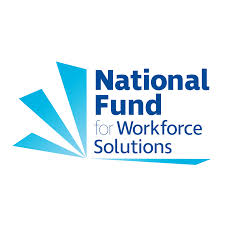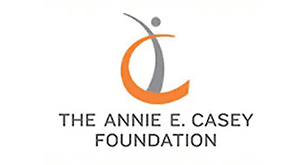Across the human services sector, a variety of data sharing models support state and local benefits access interventions and increasingly catalyzes longerterm systems transformation initiatives. Projects funded under the Coordinating SNAP & Nutrition Supports (CSNS) grant program deployed three distinct … Read More
Interdisciplinary

Transcending Age-Based Divides: The Case for Scaling Intergenerational Solutions
Major demographic changes in the United States are leading to an increasingly multicultural and Multigenerational society. By 2030, the percentages of adults aged 65 and older and children under age 18 will be roughly the same, with ethnic and racial … Read More

How Positive Youth Development Approaches Can Inform Your Business Choices
Whatever the future of work may be, there’s one thing we know for sure: young people today will be doing most of it. The U.S. is currently going through one of the most profound demographic shifts in its history, with … Read More

CDC Guidance for Communities Assessing, Investigating and Responding to Suicide Clusters, United States, 2024
Introduction In 2021, approximately 48,000 lives were lost to suicide in the United States. During this time, suicide was among the 10 leading causes of death among persons aged 10–64 years and the second leading cause of death among children … Read More

Discrimination In Multi-Phase Systems: Evidence From Child Protection
Introduction Large racial disparities have been documented in many high-stakes settings—such as employment, healthcare, housing, and criminal justice—raising concerns of discrimination by individual decision-makers. At the same time, there is growing understanding that a focus on individual decisions can yield … Read More

Prenatal Drug Exposure: CAPTA Reporting Requirements for Medical Professionals
Why use this fact sheet? As medical professionals who work with pregnant patients, you face numerous medical, legal, and ethical decision points when treating a patient for substance use during pregnancy, and when providing care to a neonate with drug … Read More

Recommendations for Regulating Artificial Intelligence to Minimize Risks to Children and Their Families
From January 2023 to March 2024, multiple entities have published guidance on artificial intelligence (AI), underscoring growing public concerns regarding AI governance. Meanwhile, as federal and state legislators weigh the need for AI regulations to safeguard the public from various risks, recent discourse … Read More

Transforming How We Deliver Prevention Services
The 2023/2024 Prevention Resource Guide was created with input from a broad representation of national experts, including national child abuse prevention partners and colleagues on the Federal Inter-Agency Work Group on Child Abuse and Neglect as well as parents with … Read More

Using Personal Experience To Improve Human Services
PERSONAL EXPERIENCES OF PROGRAMS AND POLICIES The movement toward employing professionals with personal experiences with systems is rooted in both moral arguments and practical considerations: “Our takeaways from this paper are straightforward: When you bring personal experience into program design, … Read More

Connecting Sex Trafficking Survivors To Education And Jobs
Wellspring Living, a grantee of the Annie E. Casey Foundation, is a nonprofit that serves survivors of sex trafficking and those at risk for exploitation. Based in Metro Atlanta, a city with one the highest rates of human trafficking in the United States, the organization … Read More
